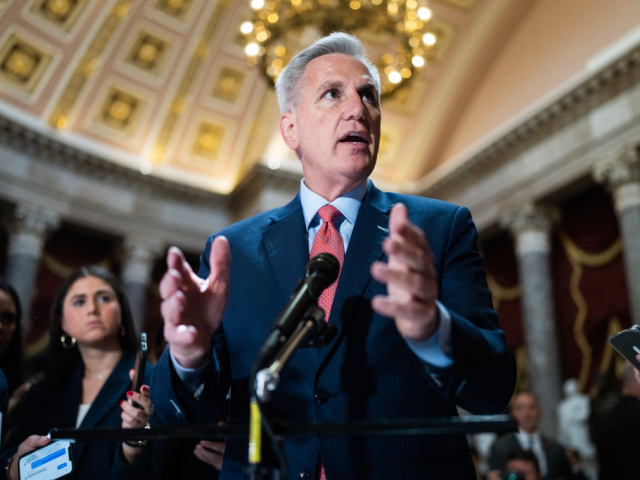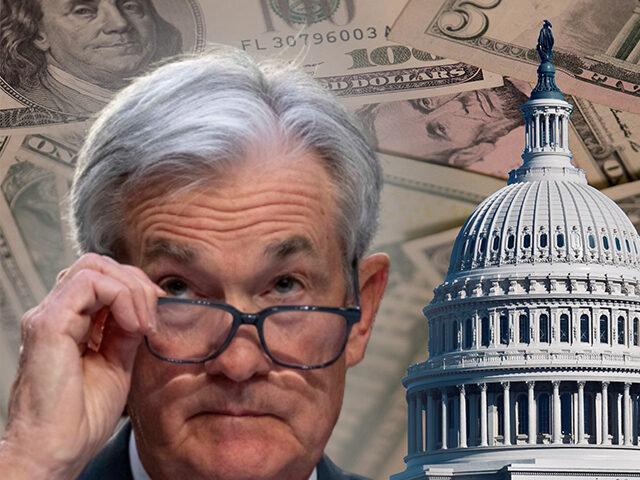Debt Deal Could Mean More Fed Hikes
The deal to suspend the limit on federal government debt until 2025 removes one of the obstacles to another Federal Reserve rate increase.
It was highly unlikely that the Fed would have decided to raise rates without a deal. Federal Reserve officials regarded the possibility of crossing the “x-date”—the point at which the government would no longer have enough available funds to pay bills as they come due—with sufficient alarm to forestall a hike even if other economic data were supportive of higher rates. Monetary policy, in other words, would have become a captive of fiscal policy.
This is one of the unheralded risks posed by the debt limit. It threatened to push the central bank away from further tightening even if that is what the data were to prescribe. The result might have been an acceleration or prolonging of inflation. The debt deal clears the road for Fed officials to pursue monetary policy according to economic fundamentals instead of navigating around a battle over fiscal policy.
That’s one reason the Fed’s decision to absent itself from the discussion over the debt ceiling—and particularly the need for fiscal restraint—was so regrettable. The question of how much debt and how large a deficit the economy can support very much impacts the Fed’s statutory mandate to pursue full employment and price stability. At the very least, Fed Chair Jerome Powell could have stated the likely consequences for interest rates if the country continues on the spending path charted by the Biden administration.
A Tricky Question of Timing
The deal brokered by House Speaker Kevin McCarthy (R-CA) suspends the current $31.4 trillion debt limit into 2025. Many on the right, including several members of the House Republican Caucus, would have preferred a one-year suspension, which would have set the stage for another debt ceiling fight next year. Many of these critics believe that forcing Biden to defend another debt ceiling increase in an election year would hurt his chances for re-election and bolster those of Republicans to regain the White House and the Senate and maintain control of the House.
Perhaps. As Yogi Berra might have said, events are hard to predict, especially if they haven’t happened yet. A year from now it seems very likely that the economy will be in a recession or close to one (perhaps entering into it or perhaps coming out of it). Unemployment is likely to be higher in June of 2024 than it is today. The public may be less concerned about government debt levels and inflation if the economy is shedding jobs, incomes are plunging, and output is falling. Instead of a better deal or a political win next year, the debt ceiling could become a political liability for Republicans.

Speaker of the House Kevin McCarthy (R-CA) talks with reporters about the debt ceiling negotiations in the U.S. Capitol’s Statuary Hall on May 24, 2023. (Tom Williams/CQ Roll Call)
There is at least as plausible a case to be made that Republicans would do better in next year’s elections by fighting on the issues they choose based on the mood of voters rather than on an issue dictated by the fiscal calendar. As our friend Larry Kudlow of Fox Business has argued, it’s very likely that next year’s election will turn on “kitchen table” issues. Playing the role of budgetary bean counters is not going to inspire many votes. It risks distracting from a more important agenda centered around economic nationalism and growth.
What the Deal Means for the Economy
The most direct macroeconomic impact of the debt deal is likely to come from the agreement to resume student debt payments this summer. The average monthly bill before the pandemic was $393 per borrower, according to data from the Federal Reserve. Some 40 million Americans have student loans. Many of those with student debt have a relatively high propensity to spend any additional discretionary income, which means that a large part of that $393 was finding its way into consumer spending. As a result, the resumption of payments will mean a decline in overall demand in the economy and relief from some inflationary pressures.
This might be somewhat offset, however, by a boost in consumer confidence. According to the University of Michigan’s Joanne Hsu, the debt ceiling debate has likely been weighing on consumer confidence. Although this has not shown up in spending restraint on the part of households, the lifting of this worry could propel some additional spending. To the extent that business investment has been held back by the uncertainty around the debt ceiling, that could also improve.
Would it have been better if McCarthy’s team could have wrung deeper spending cuts out of the Biden administration? Certainly. The deal agrees to cap discretionary non-military spending at $704 billion, down from the projected 2024 baseline of $757 billion. The House bill would have reduced it to $689 billion. Even that, however, would only bring us back to 2022 levels, which would not be going far enough for an economy at full employment and very high inflation.
It’s still too early to say whether the Fed will hike at the June meeting. The CME’s FedWatch tool, which is based on fed funds futures prices, now gives a 70 percent chance of a hike in June, up from less than 30 percent last week. A lot will likely turn on the jobs report this Friday. A weak jobs report will likely allow the Fed to at least skip the June meeting and put it into a holding pattern for the July meeting. A strong jobs report should guarantee another hike, either in June or July.

COMMENTS
Please let us know if you're having issues with commenting.